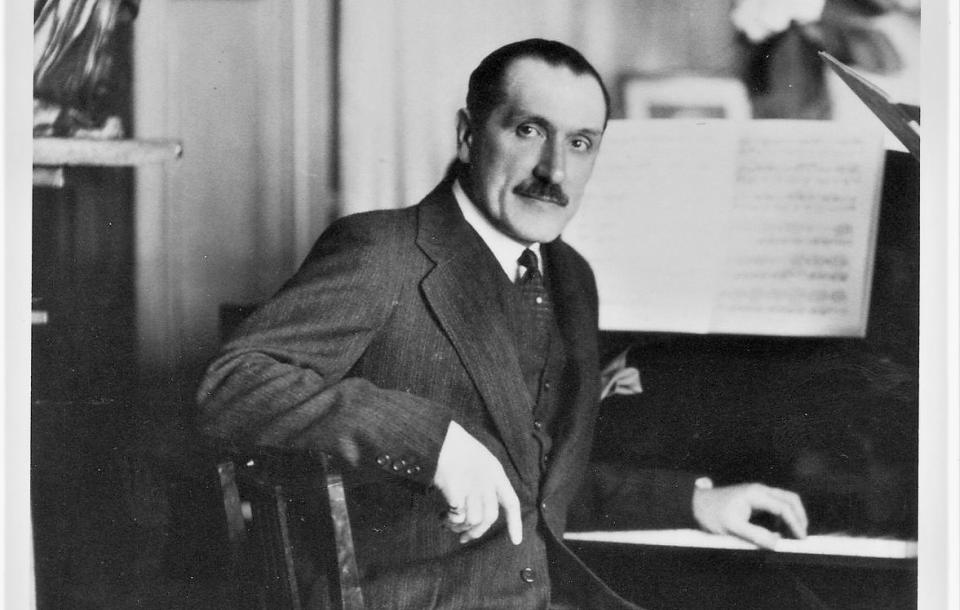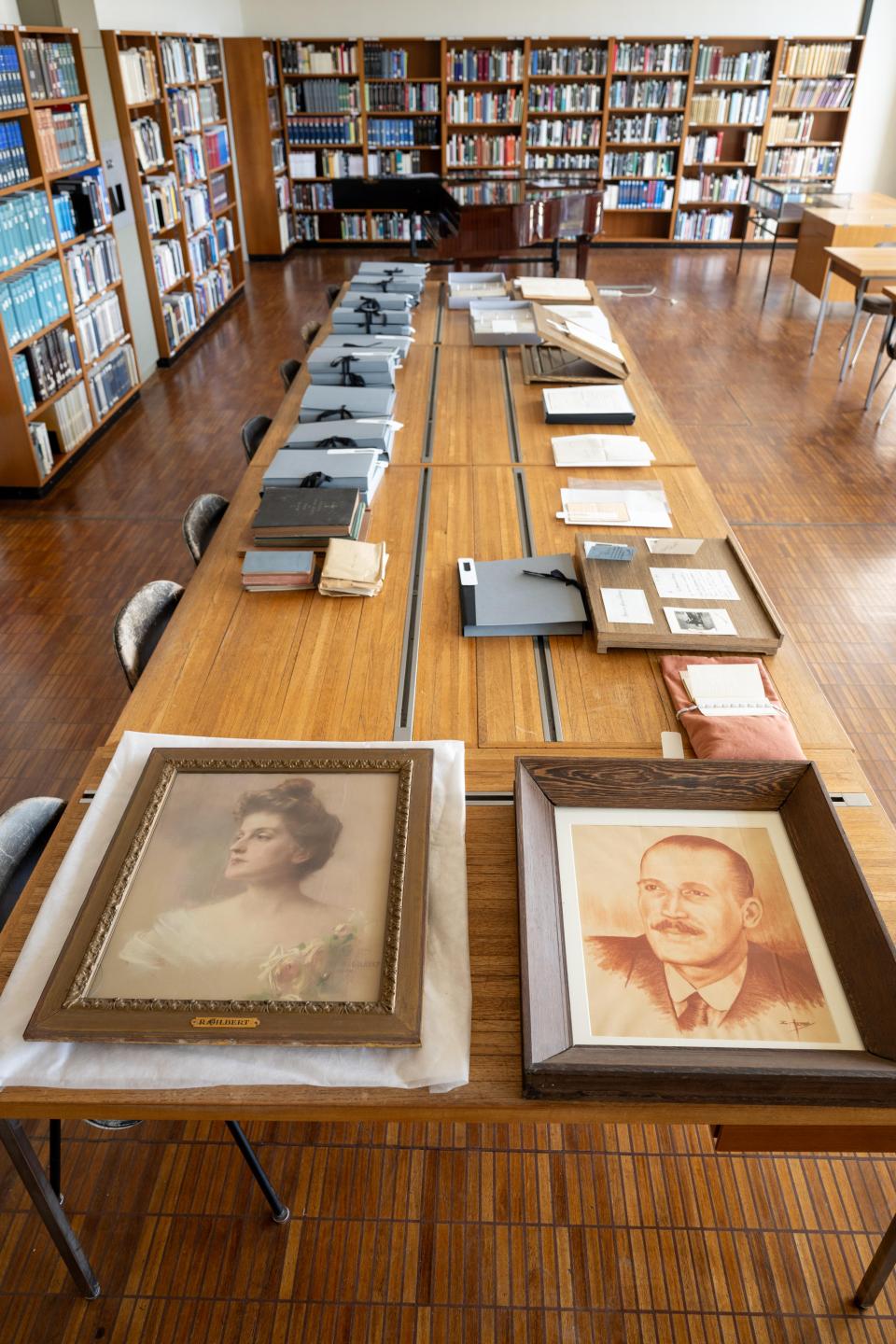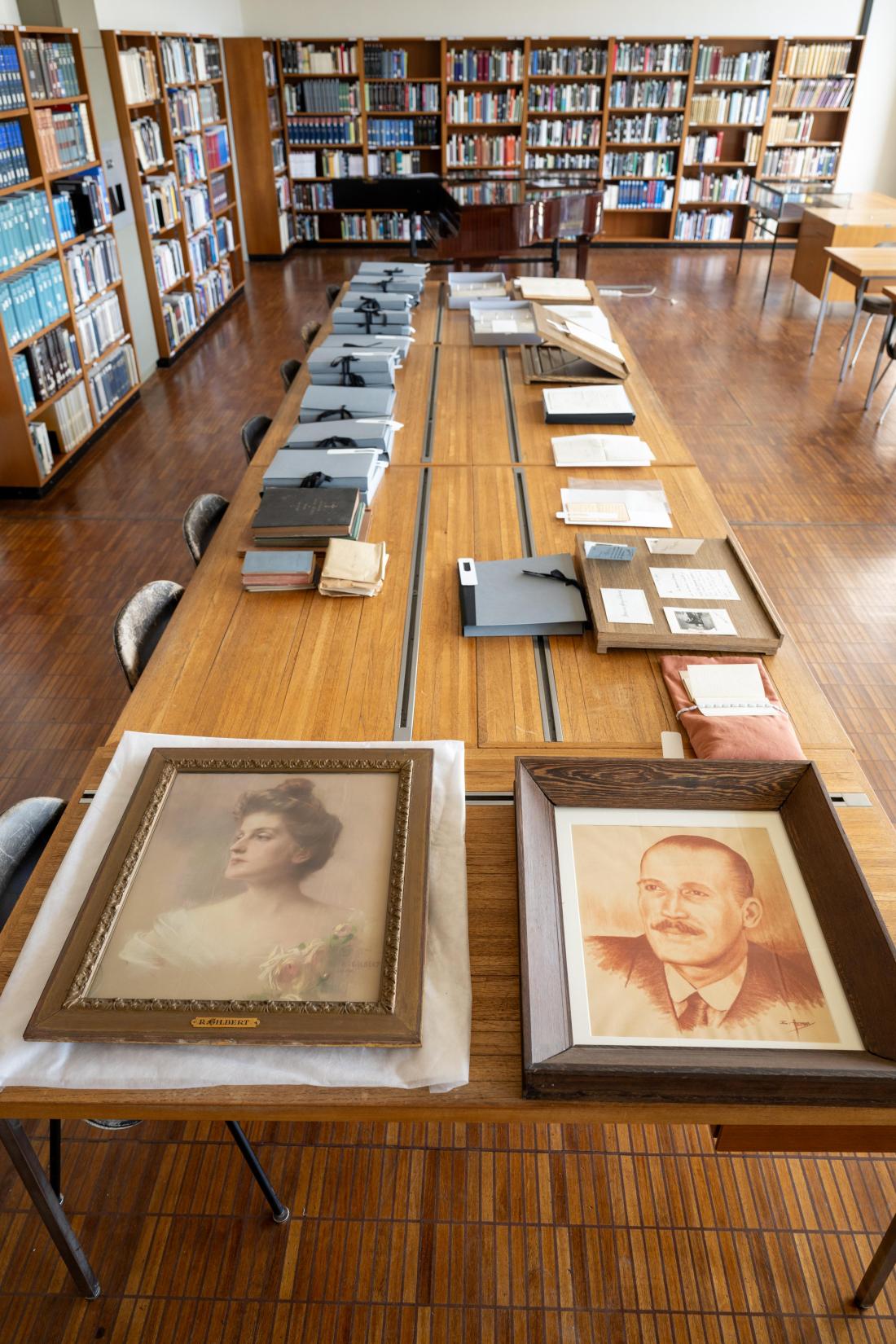Who was Henry Le Bœuf?
That the name of this prominent Brussels figure is now mainly associated with Bozar’s great concert hall is no coincidence. Trained as a lawyer and a music lover and pianist in his spare time, Henry Le Bœuf (1874–1935) was a music critic and member (and even founder) of various institutions. In 1919 he became director of the Société des Concerts Populaires, and in 1922 he founded the César Franck Choir. From 1922 he was a founding member of the Palais des Beaux-Arts in Brussels, where he remained one of the leading figures and director until his death in 1935. In 1927, he founded the Philharmonic Society there.

What's in the private archive?
The archive contains the extensive correspondence between Henry Le Bœuf and his wife Louise Thys, as well as letters from artists and from his friend Queen Elisabeth. There are also autograph writings on music, some published and others unpublished, various iconographic documents and a rare album created to mark an event in honour of Henry Le Bœuf on 2 May 1926.
This album contains the signatures of the members of the “Fondation Henry Le Bœuf”, founded on the occasion of this tribute, followed by autograph notes from famous composers such as Paul Dukas, Joseph Jongen, Darius Milhaud, Maurice Ravel, Serge Prokofiev, Francis Poulenc and Arthur Honegger. You can consult the album here.

An acquisition for the future
This exceptional acquisition perfectly fits the mission of the Marie-Jeanne Dauchy Fund, managed by the King Baudouin Foundation, which is committed to the conservation, restoration and valorisation of Brussels’ cultural heritage. It offers an ideal opportunity to renew our knowledge of Belgian cultural history from the end of the 19th century to the eve of the Second World War. At the same time, the collaboration between KBR and Bozar around the “Fondation Henry Le Bœuf” music library, initiated in 2023, is being continued. Finally, this acquisition is part of a series of enhancement projects in the run-up to the centenary of the Palais des Beaux-Arts (2028) and the bicentenary of Belgium (2030).


